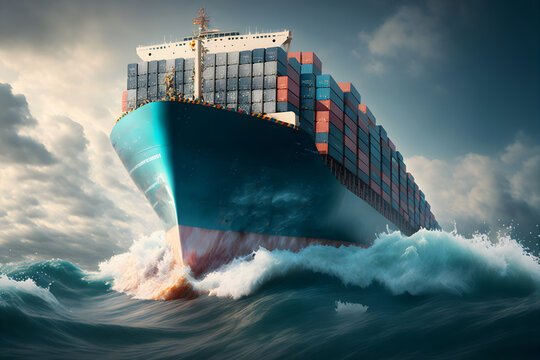CARGO SHIP
A cargo ship or freighter is a merchant ship that carries cargo, goods, and materials from one port to another is called a cargo ship. These are also known as freighters, and thousands of them swarm the seas of the earth at any given time because they handle the major bulk of international trade services. Cargo ships are usually specially designed for the task, often being equipped with cranes and other mechanisms to load and unload, and come in all sizes. Today, they are almost always built of welded steel, and with some exceptions generally have a life expectancy of 25 to 30 years before being scrapped. General cargo vessels carry packaged items like chemicals, foods, furniture, machinery, motor- and military vehicles, footwear, garments, etc.


BULKER SHIP
A bulk carrier or bulker is a merchant ship specially designed to transport unpackaged bulk cargo — such as grains, coal, ore, steel coils, and cement — in its cargo holds. Since the first specialized bulk carrier was built in 1852, economic forces have led to continued development of these ships, resulting in increased size and sophistication. Today's bulk carriers are specially designed to maximize capacity, safety, efficiency, and durability. Today, bulk carriers make up 21 percent of the world's merchant fleets, and they range in size from single-hold mini-bulk carriers to mammoth ore ships able to carry 400,000 metric tons of deadweight. A number of specialized designs exist: some can unload their own cargo, some depend on port facilities for unloading, and some even package the cargo as it is loaded. South Korea is the largest single builder of bulk carriers, and 82 percent of these ships were built in Asia.